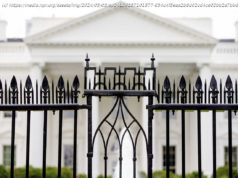The first Republican presidential debate of the 2024 election cycle is on August 23 in Milwaukee, Wisconsin. Here’s what you need to know about the candidates who have made the debate stage.
Trump won’t be onstage, but there will surely be a show put on.
The 2024 presidential election is finally picking up, as the Republican Party holds its first presidential debate, hosted by Fox News, on Wednesday.
As of Monday — the deadline to qualify — as many as 11 of the 14 declared candidates vying for the party’s nomination appear to have met the standards to participate, though the Republican National Committee has only confirmed eight of them, including the party’s frontrunner, former President Donald Trump, who has reportedly decided not to attend. A ninth qualifier, former Arkansas Gov. Asa Hutchinson, looks likely to make the stage after the RNC reviews his donor list and polls.
The seven currently confirmed participants — Florida Gov. Ron DeSantis, businessman Vivek Ramaswamy, former Vice President Mike Pence, former New Jersey Gov. Chris Christie, former South Carolina Gov. Nikki Haley, Sen. Tim Scott of South Carolina, and North Dakota Gov. Doug Burgum — will have their first major opportunity to claw away support from Trump, who leads the field with the support of just over half of Republican voters, according to polling averages.
The contenders will meet at the Fiserv Forum in Milwaukee, Wisconsin, for a two-hour debate, starting at 8 pm local time. Fox News will air it on their cable TV channel and livestream it online and on their streaming platform Fox Nation. Longtime Fox anchors Bret Baier and Martha MacCallum will moderate.
To make the debate stage, candidates faced two major hurdles: accumulating donations from a total of 40,000 unique donors, with at least 200 of those donations coming from unique individuals in 20 states or territories, and receiving the support from at least 1 percent of voters in three national polls, or 1 percent of voters in both two national polls and two early state polls, like Iowa or New Hampshire. The point of those requirements was to cull the field of contenders to those who seemed like they could actually be serious candidates for the nomination — even as it appears to be Trump’s contest to lose. Participants have also been asked to sign a “loyalty pledge” to support the eventual GOP nominee.
Even without the full field, the debate stage will still be pretty crowded — albeit not quite as full as the 2020 Democratic primary debates or the 2016 Republican debates — so you can be forgiven for not knowing exactly where all these candidates fall on the political spectrum in terms of their loyalty to Trump or their prospects as general election candidates. So, before debate day, I’ve decided to sort the seven candidates into categories that will make it easier to understand the dynamics of the GOP primary so far.
Excluding Trump, those categories are the donor-favorite Trump rivals, the former Trump allies turned critics, the rich vanity campaigners who aren’t explicitly attacking Trump, and the promising Republican who missed their moment.
Not included in this list are the handful of candidates who may not have their participation confirmed by the RNC, or who haven’t met the requirements outright. Of those, Miami Mayor Francis Suarez and businessman Perry Johnson have said they finished meeting the polling requirement in the last few days. Former US Rep. Will Hurd and Larry Elder, the one-time California gubernatorial candidate, have hit only the donor threshold. Ryan Binkley, a Texas pastor, has met neither.The donor-favorite Trump rivals
Composed of Ron DeSantis and Tim Scott, this category could also be called “the legitimate Trump challengers,” save that neither appears likely to overtake the former president at the moment. Instead, a better way to think of these two is as the current favorites of Republican donors — the two primary challengers with the biggest cash reserves (aside from Trump), who are getting the most attention from big-money donors and polling well in Iowa, even if they have yet to replicate that success nationally.
Much has been written both to hype up and to eulogize DeSantis’s presidential prospects, but in reality, he is still the most credible national rival to Trump, even if his odds of winning the nomination have soured. His support in primary polling has collapsed over the summer, despite his campaign’s attempts to “reset,” pivot to being more open with mainstream media outlets, and be more frugal in its spending. But on debate night, he may be able to take on one of the biggest criticisms he and his campaign team have faced: that he hasn’t done more to clearly distinguish himself from the frontrunner or go after the former president.






